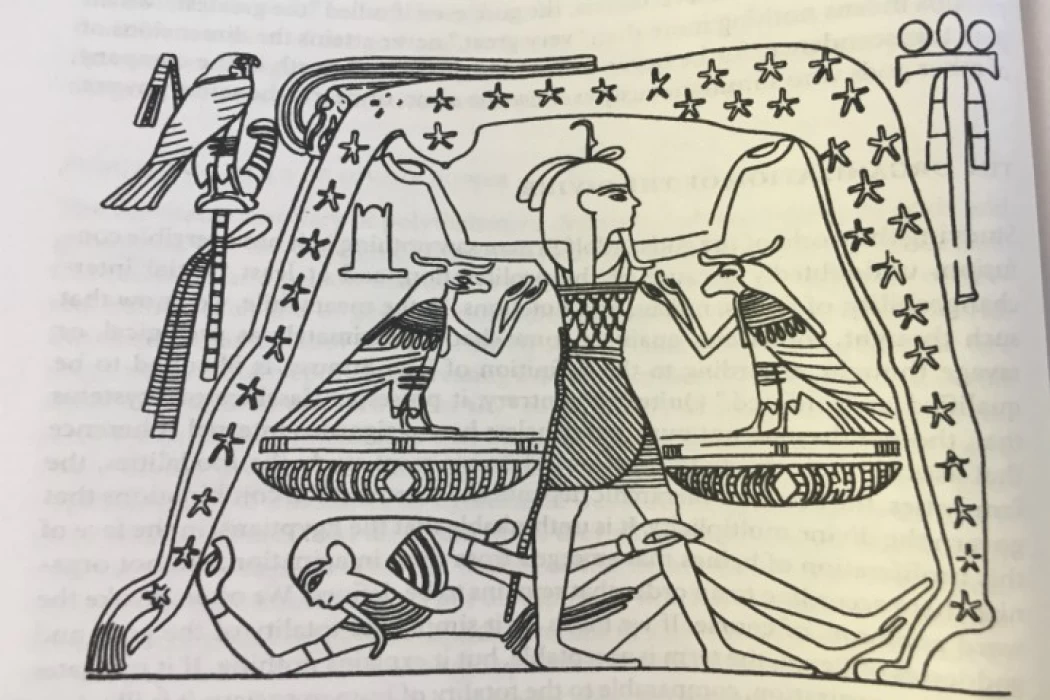
God Shu | Egyptian God of Air
The Egyptian Air God
Shu is the lord of air and wind whose actions were shown in hot desert air, as they were shown in cold winds that refresh humans and animals. It is not entirely known what his name means, but it is possible to read as follows this rises; With the possibility of deriving from an act in the sense of being empty, Shu is usually portrayed as a badminton on his head, the hieroglyphic symbol used to write his name.
He is also a member of the Heliopolis Owners' Complex; The creation began with Shu and his sister Tvinot, and the two emerged from the primitive Lord Atom, who held the qualities of male and female together, and according to one account of the myth of creation in Heliopolis, Shu came from Zephyr Atom.
For this it is associated with the soul, as a whiff; Or as the basis of life itself and of Shu and Tafnut came GB and Nott, Shu's function was to carry Knut and separate the sky from Earth. Thus, Shu is the divine ability that created the space of life in which the creation takes place.
That is why Shu escaped persecution under King Akhnatun; He was considered a resident of time in the sun disk and Shu later, too, was associated with the Moon, through which the Moon lit up the path for the deceased and the masters, across the other world.
Although Shu is mentioned in pyramid texts and plays an important role in coffin texts; It is almost remembered in others before the age of the modern State. His appearance was perhaps the result of his association with the foundation of life, which played a pivotal role in the priesthood of that period.
God Shu was born with his twin sister Tefnut, goddess of humidity, whom he took as his wife, from that union, Nut, the Goddess of the sky, was born, who represented the sky full of stars, and Geb that symbolized the earth.
This deity was represented as a man wearing a crown with an ostrich feather. In one of his hands, he carried a scepter; he could also be found with a knee resting on the earth, as that way he held heaven in his hands, encompassing its four cardinal points, which were called the pillars of Shu.
In other images of the god Shu, he is seen emerging behind the earth, holding a solar disk over his head, and with his hands holding the bases of the disk, he also appeared in the form of a lion; this was his most sacred manifestation.
This god of air and light was responsible for most of the meteorological phenomena, he represented the rays that came from the god Ra, along with the burning heat of summer and the dry air, in addition to the cold north wind.
Its main occupation was to keep the sky apart which was Nut and the earth represented by Geb, in order to prevent chaos in the universe, this was recorded in the Book of the Dead, leaving Hermopolis as the place where Shu had raised the sky.
The meaning of his name is not entirely clear, but it could be read as follows: ‘He who rises up.’ It might have come from a word that means "to be empty." Shu is typically portrayed as a man holding a feather, which is the hieroglyphic symbol for his name... He also belongs to Heliopolis' assembly of gods, where Shu and his sister Tefnut were the first to create the universe. The two emerged from the primordial god Atum, who possessed both male and female characteristics. According to one version of the Heliopolis creation myth, Shu came from Atum's exhalation.
The goddess Tefnut is the spouse of the god Shu. Shu, the god of air, and his sister and wife Tefnut, the goddess of water, are known to have mated to create the god of earth and the goddess of sky... The four of them represent the main elements of life, which are ‘earth, air, sky, and water.’ The ancient Egyptians believed that without water, the earth would dry up and be scorched by the sun's heat.
It was a centre of worship and a temple of the gods Tefnut and Shu in the city of Lyontopolis in the Egyptian Delta. The pharaoh and priests would purify themselves by tossing a stone into a deep pool before entering the temple to start the religious rites. Ordinary Egyptians were allowed to come to the doors or the front of the temple courtyard to receive blessings and offer gifts.














